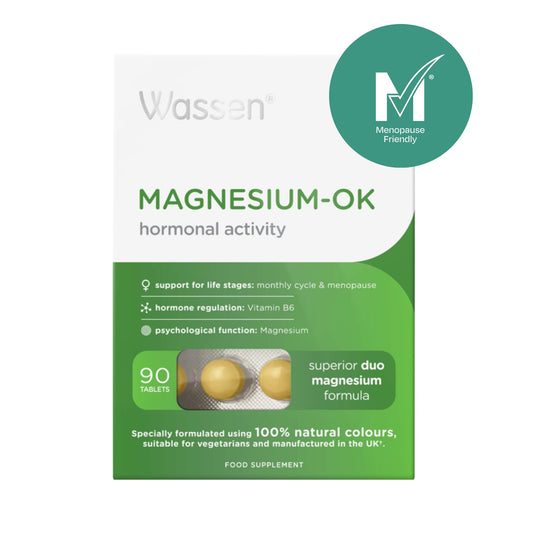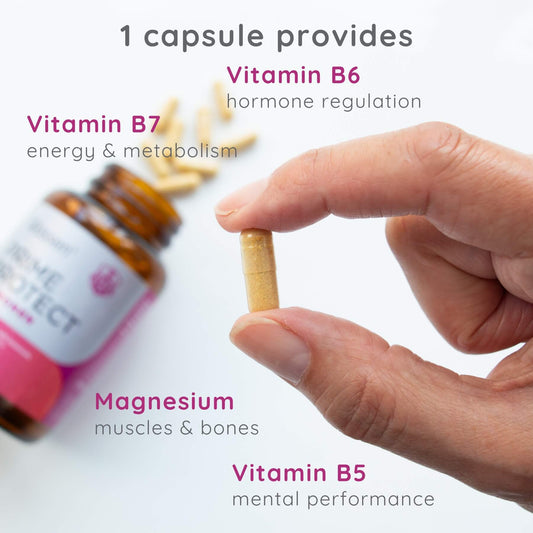Menopause – the great hormonal rollercoaster! From hot flushes to night sweats, mood swings and more, it can definitely bring it's challenges. But fear not, there are a few things you can do to make the journey a little smoother. Our team members Vicky and Marie share their tips:
1. Focus on a good night's sleep

We all know how important sleep is, but it's even more crucial when you're going through menopause. Hormonal changes can play havoc with your sleep, so try to give yourself as many tools as you can to sleep well:
Stick to a routine: Go to bed and wake up at the same time each day, even on weekends.
Create a relaxing bedtime routine: Have a warm bath, read a book or do some gentle stretching.
Make your bedroom a sleep haven: Keep it dark, quiet and cool.
Lay off the caffeine: Try to limit any caffeinated drinks to the morning. For Vicky, cutting out caffeine completely has really helped. Instead she has herbal teas and has chamomile tea as part of her relaxing bedtime routine.

2. Move your body

Exercise is a fantastic way to help manage menopausal symptoms and boost your mood. Try:
Yoga or Pilates: These low-impact exercises can help improve your flexibility, balance and reduce stress. Both Marie & Vicky use yoga classes as their time to de-stress.
Swimming: A great way to get a full-body workout without putting too much strain on your joints.
Walking: A simple but effective way to get moving.
Strength training: This is especially important during the menopause as the drop in progesterone and oestrogen levels cause bone density and muscle mass to decrease. You don't need to join an expensive gym to do this - simple body weight exercises are equally as effective! We'll be sharing some exercise ideas in our next blog.
3. Fuel your body

What you eat can make a big difference in how you feel during menopause. Focus on:
Protein:
As women age, we need more protein! It is essential for maintaining muscle mass and bone health.
1.4–2.2 grams of protein per kilogram of bodyweight per day is recommended, so most women will end up needing the equivalent of 20-30g (palm-size) servings of high-protein foods per day, or roughly 1–2 servings per meal.
Eggs, lean red meat, poultry, fish and vegetable sources of protein like beans, pulses and nuts are great sources.
Vicky recommends including protein in your breakfast to help stabilise blood sugar levels. A great protein-packed breakfast could be this chia seed pudding, or eggs and avocado on toast.

Fibre:
One of the symptoms for perimenopause and menopause is bloating, cramps and other irritable bowel syndrome (IBS) symptoms. Eating a diet rich in fibre helps support a healthy gut and keeps bowel movements regular. You should aim for 30g/day of fibre, which is the equivalent of:
At least 2 servings of fruit. One serve is 1 medium piece of fruit (banana, apple, orange etc.), 2 smaller fruits (kiwi, mandarin, plum etc.), 1 cup of berries or 30g dried fruit.
Fruits and vegetables:
Healthy fats:
Calcium and Vitamin D:
4. Find your tribe

Talking to others who are going through the same thing can be really helpful!
Join a support group: There are lots of online and in-person groups for women going through menopause.
Chat to your friends and family: They'll be there to listen and offer support.Menopause is a natural part of life, but it doesn't have to be a negative chapter! By making a few lifestyle tweaks it can be a time to reclaim your health.





